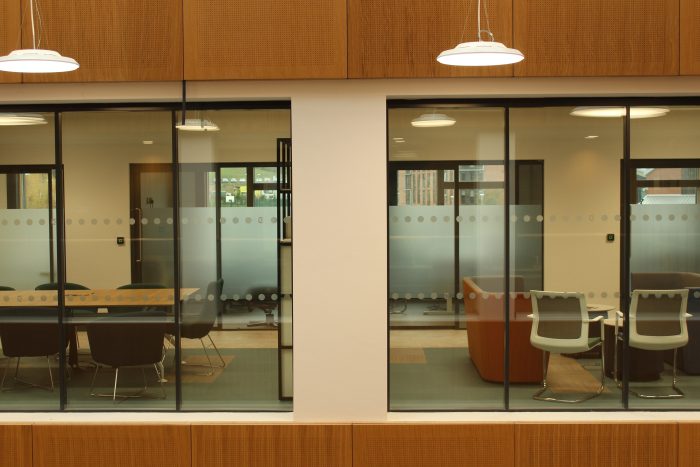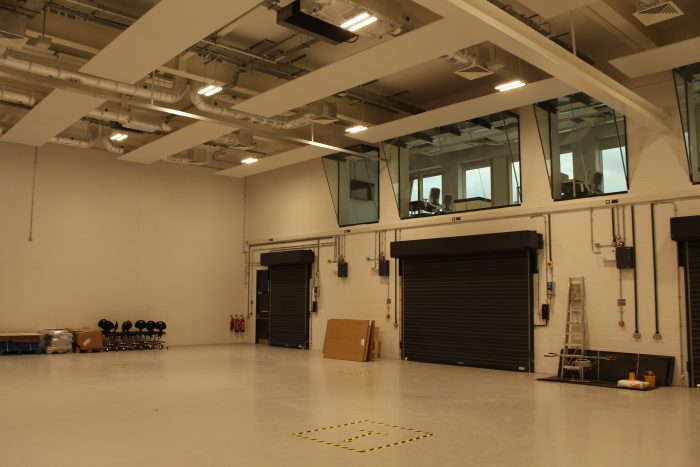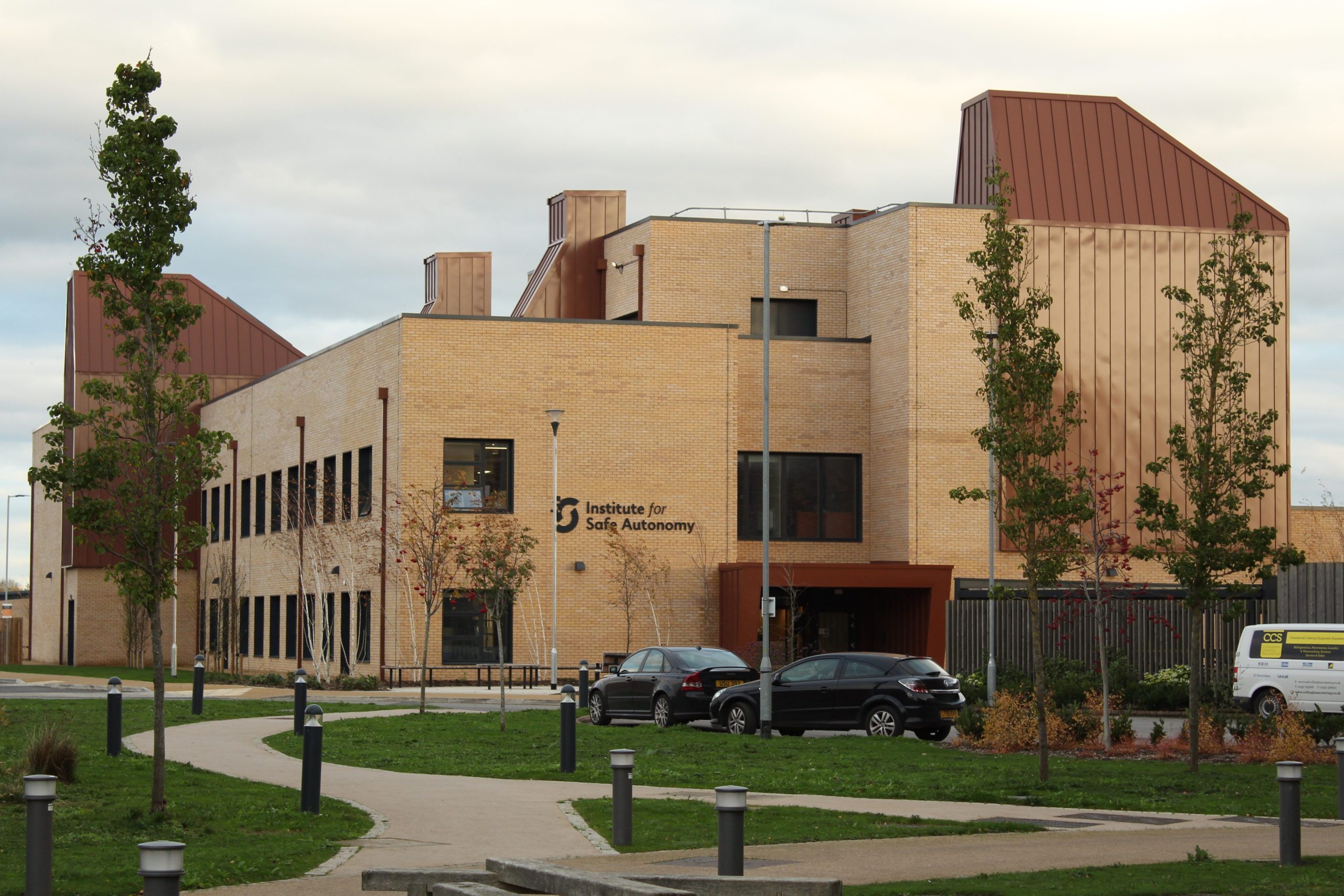Robots will soon be roaming the gleaming hallways of the £35 million Institute for Safe Autonomy (ISA) on University of York’s Campus East. ISA department director Miles Elsden tells me this as he generously gives me a tour of the impressive new setup ahead of its official opening set for spring 2023. Designed and purpose built to be a ‘living lab’ for Robots, Artificial Intelligence, Quantum Communication and more (as well as a few human researchers too), this exciting development is set to be the UK’s first dedicated safe autonomy research centre.
From the moment you walk through the door, the space is smart, professional, glassy and spacious, and soon going to be a thriving hub full of researchers, industry experts, and global leaders – all focused on one of the most important issues of our time: ensuring that the technology we make is safe, and works for the good of society.

Roughly split between casual meeting rooms and offices on one side of the building, then labs and active collaborative research spaces on the other, this impressive new structure is far bigger than it looks from the outside. Packed with world class technology; from 3D printers, assistive robotic arms, a laser room, an underwater testing pool, and even a telescope on the roof (the same roof that will also be used as a landing pad for drone testing), this place promises to be a dynamic and exciting new place on campus.
Miles tells me that most of the doors are automatic – “so they can be opened by robots.” He then proceeds to introduce me to the robot who will be occupying the reception desk, it blinks to life and seems friendly enough, arms moving and eyes following you as you speak. I ask him if it has a name, he tells me not yet.

This is forgivable, most of the researchers have only just moved in since the space was completed over the summer. The testing pool, he tells me, still hasn’t had its acoustic tiles put on yet – he shows me the empty pool, a few meters square in width and depth. It will soon be used for underwater communication and underwater robotics research.
I’m shown into another room, where remarkable self-programming, self-building, ‘evolving’ robots are being made, or rather, making themselves through Artificial Intelligence, to solve real world challenges.
In another room, I see a long mirror glass window separating the space, providing an observation area for researchers to look through unseen. This will be an important room, where new technology will undergo trials with humans, and will be measured on how well they perform and if they deliver as a technology to improve people’s lives. From this room could come robots that revolutionise many areas of society.

At the back of the centre, past the warning-sign-covered laser room doors, and the quantum communications lab, is one of the spaces that fascinates me the most: it is the largest room in the entire building and features an edgy overhanging glass control room. This is where robots of the future will be tested on and observed from a safe distance.
With large doors opening onto the testing ground outside – a scenic spot by the lake (which will also be used as a larger testing pool), the ISA also sits in front of a large cleared patch of land which will soon house an industry leading smart solar farm that will power most of the facility through the local university energy network. The aim is to make the centre net-zero. This is a worthwhile endeavour, I figure, looking up at the dense network of fibre optic cables that feed their way through the entire building above my head.
The Institute for Safe Autonomy is set for official opening in Spring 2023. It will be a research hub, so there won’t be teaching spaces and undergraduates wandering in and out trying to find their seminar rooms, but, whoever you are, if you’re ever passing by, you may well see some entertaining robot activity.
